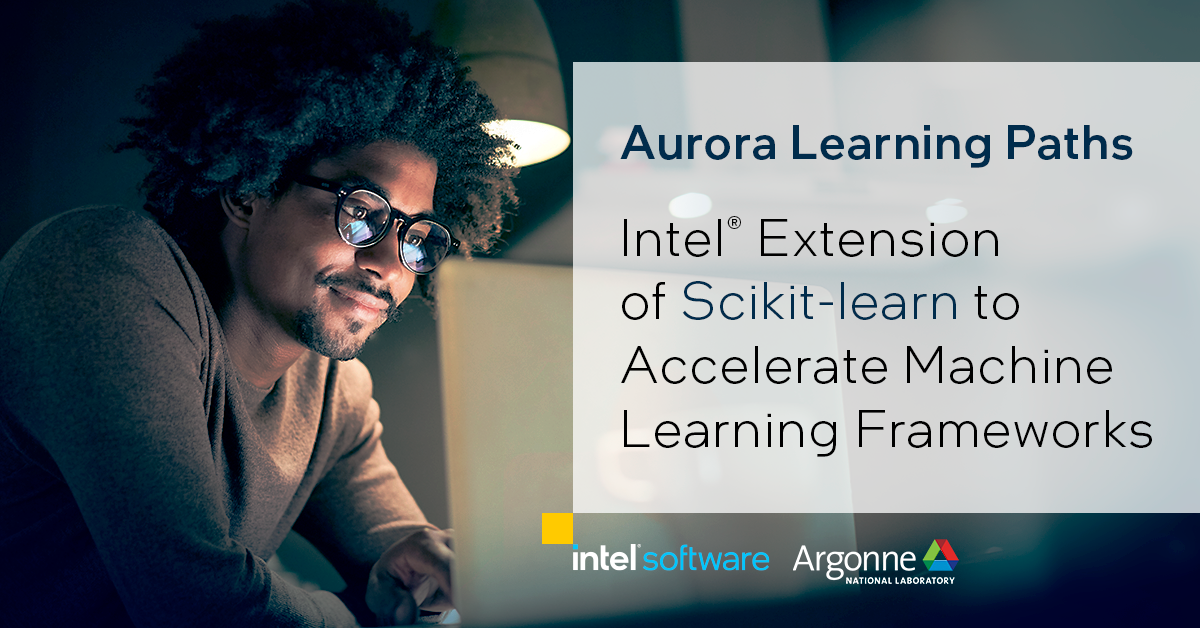Scikit-learn is among the most useful and robust library for machine learning, providing a selection of ML and statistical modeling tools via a consistent interface in Python, including classification, regression, clustering, and dimensionality reduction. In this session, Solution Architect Bob Chesebrough will showcase the Intel® Extension for Scikit-learn and how to use it to speed up on CPUs, with only a few lines of code, many Scikit-learn standard ML algorithms such as kmeans, dbscan, and pca. He’ll also address how changing a few lines of code can target these same kernels for use on GPUs.
Key takeaways:
- Where to get and how to install the Intel extension, part of the Intel® oneAPI AI Analytics Toolkit
- Example scikit-learn algorithm speed up over stock scikit-learn
- Demonstration of the single line of code that enumerates all the Intel-optimized scikit-learn functions
- How to apply the functional patch to turn on Intel Extensions for Scikit-learn
- How to apply the dpctl command to offload data and computation to an Intel GPU
- Describe upcoming hands-on workshops for deeper dives
There are two parts in this series.
EVENT DATES
The virtual series is scheduled Wednesdays from 1:30 - 3:30 p.m. US Central.
- Part 1: November 9, 2022
- Part 2: December 14, 2022
EVENT DETAILS
Part 1 (11/9): In this workshop, we will explore Intel(r) Extensions for Scikit-Learn*. See how to leverage optimizations for common machine learning tools in Scikit-Learn. In this hands-on lab, we explore Intel(r) Extensions for Scikit-Learn patching and unpatching - which can be applied from a global to more surgical level to turn on optimizations for as many as 32 optimized functions. Using a patching strategy can ensure that performance is not lost and has big potential for performance gains.
Part 2 (12/14): In this workshop, we will explore Intel(r) Extensions for Scikit-Learn* and the application of the compute follows data paradigm to extend our learning from the first workshop. We will cover how to apply "Compute Follows Data" approach of the dpctl control library to perform functions such as kmeans, dbscan, pca, ridge, NearestNeighbor, and more on Intel GPU. We will explore how to apply these in more complex use cases such as image clustering and galaxy classification where multiple sklearn functions are computed on the gpu.
Please see the Event Website linked below for a detailed Agenda of each Module.
DEVCLOUD ACCOUNT
Intel’s DevCloud will be used during the Learning Path Series. If you do not already have a DevCloud account, please visit this link to sign up prior to the first session.

